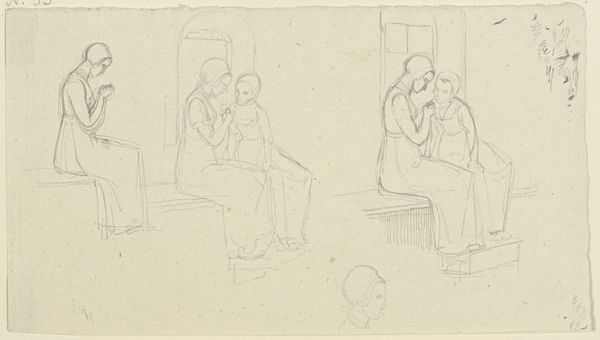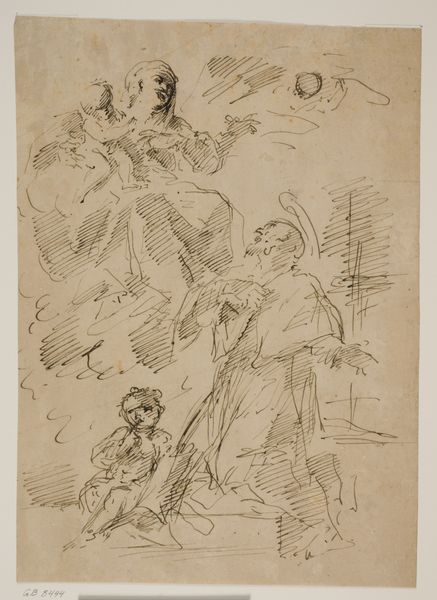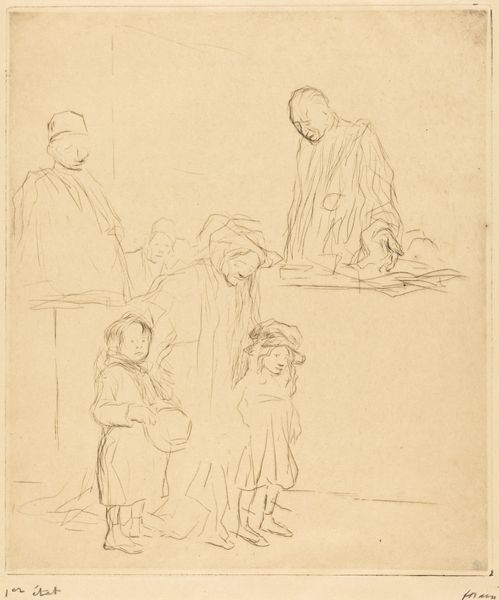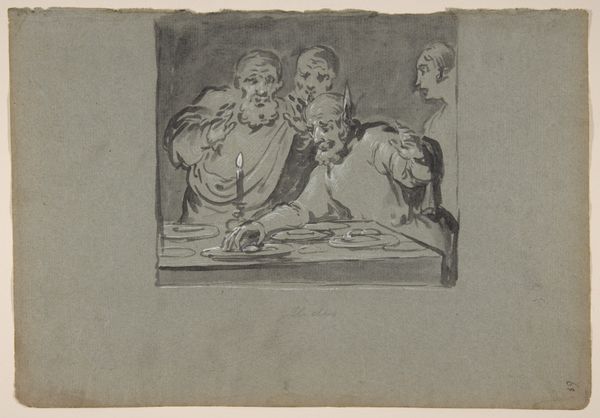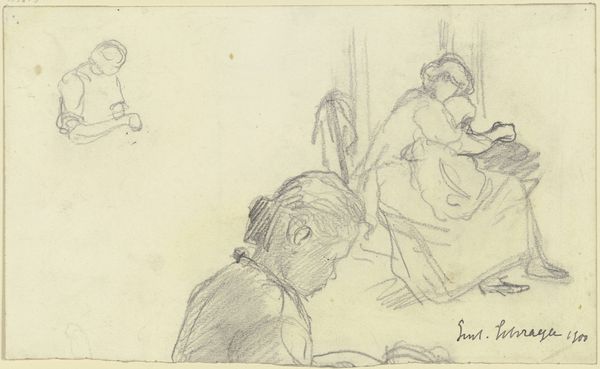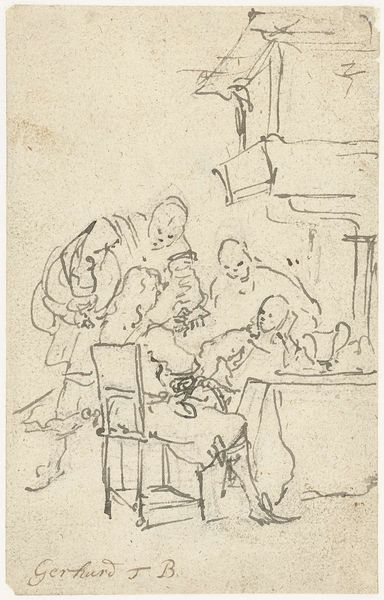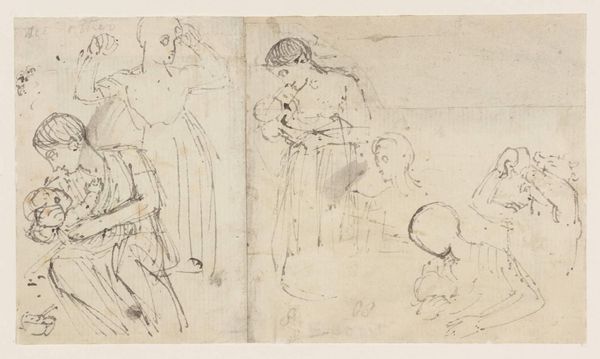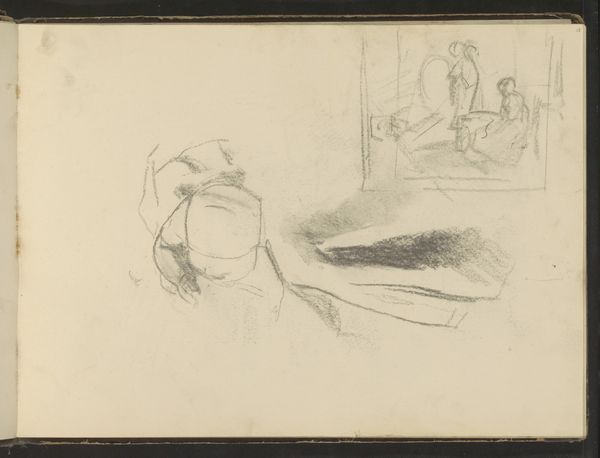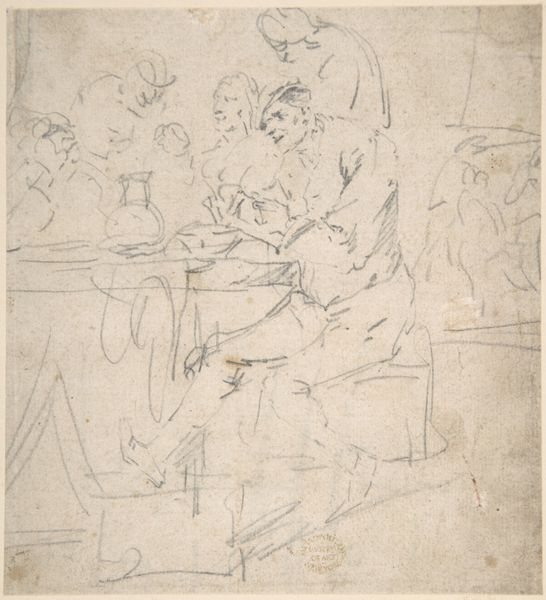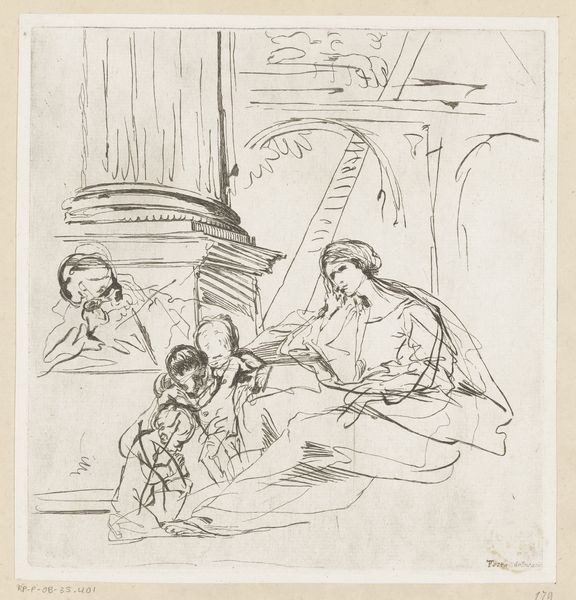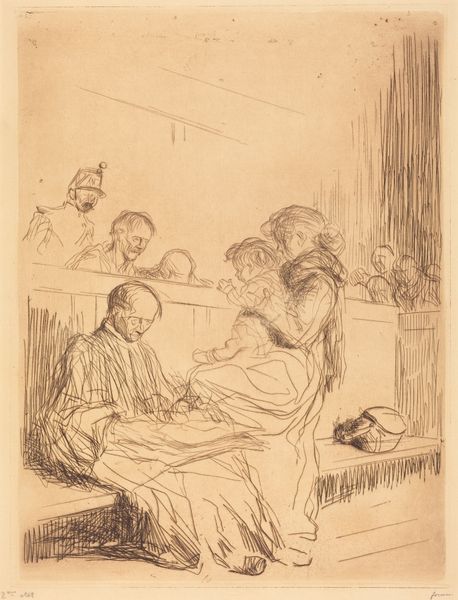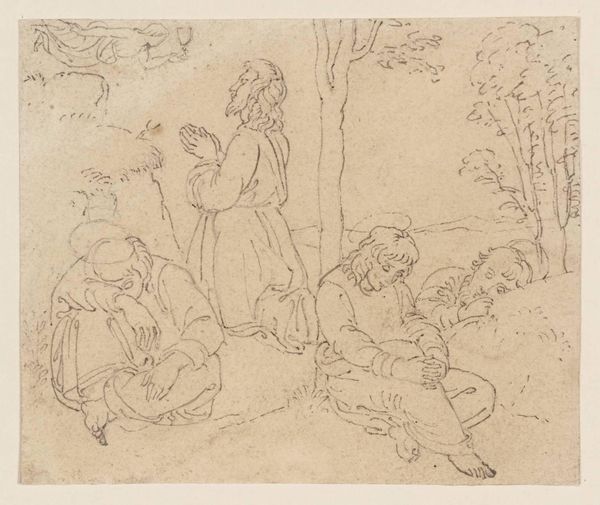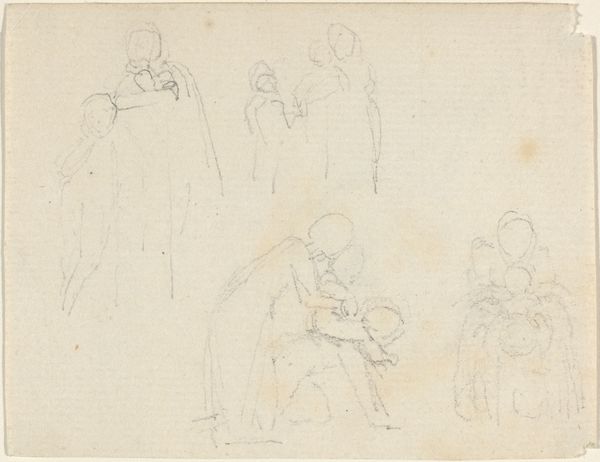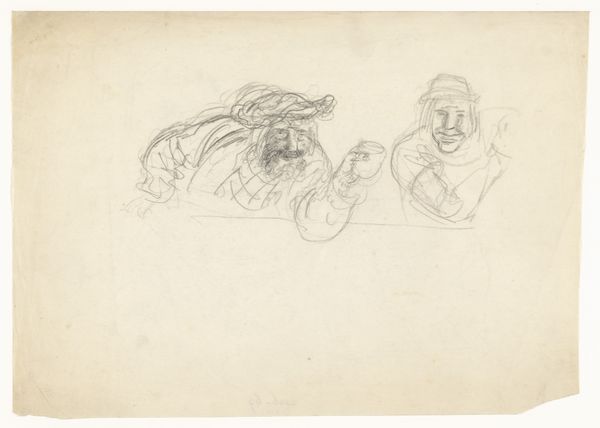
Girl Leaning on the Bottom Half of a Dutch Door, Sketches of her Head c. 1650 - 1655
0:00
0:00
drawing, pencil
#
portrait
#
drawing
#
aged paper
#
toned paper
#
light pencil work
#
dutch-golden-age
#
pencil sketch
#
sketch book
#
personal sketchbook
#
pencil
#
sketchbook drawing
#
watercolour illustration
#
genre-painting
#
storyboard and sketchbook work
#
sketchbook art
Dimensions: height 109 mm, width 167 mm
Copyright: Rijks Museum: Open Domain
Editor: Here we have Willem Drost's "Girl Leaning on the Bottom Half of a Dutch Door, Sketches of her Head," from around 1650 to 1655. It’s a pencil drawing, and the composition, almost like a page from a sketchbook, makes it feel very intimate. I'm curious about what's behind this snapshot aesthetic. How do you interpret this work? Curator: What strikes me is how Drost uses this seemingly informal sketch to engage with ideas about domestic space and the role of women within Dutch society at the time. The Dutch door itself is significant. It's a barrier, but also a point of connection. Consider who controlled access through doors and windows during this period, especially regarding young women and family social standing. What statement do you think he is making about his sitter with this type of intimate yet barrier composition? Editor: So, you're saying the open Dutch door, which usually invites you in, actually also sets a clear, visual restriction for the subject here? Is it almost like she's presenting herself to the public, but on display in her place of home, or work? Curator: Precisely. And notice how her various depictions seem caught between observation and imagination. It prompts us to consider the lives and social expectations placed on women, particularly in domestic settings. Drost captures both a likeness and the cultural constraints of his time. The question then is, is this social commentary or just a casual glimpse? Does the status of sketch medium diminish or heighten his observations about society? Editor: That gives me a lot to think about. I didn’t realize a simple sketch could open up such a rich discussion of the subject's position in Dutch Golden Age society. Curator: Exactly, and the beauty lies in its ambiguity. It makes us question the artist's intention and our own perceptions.
Comments
No comments
Be the first to comment and join the conversation on the ultimate creative platform.
